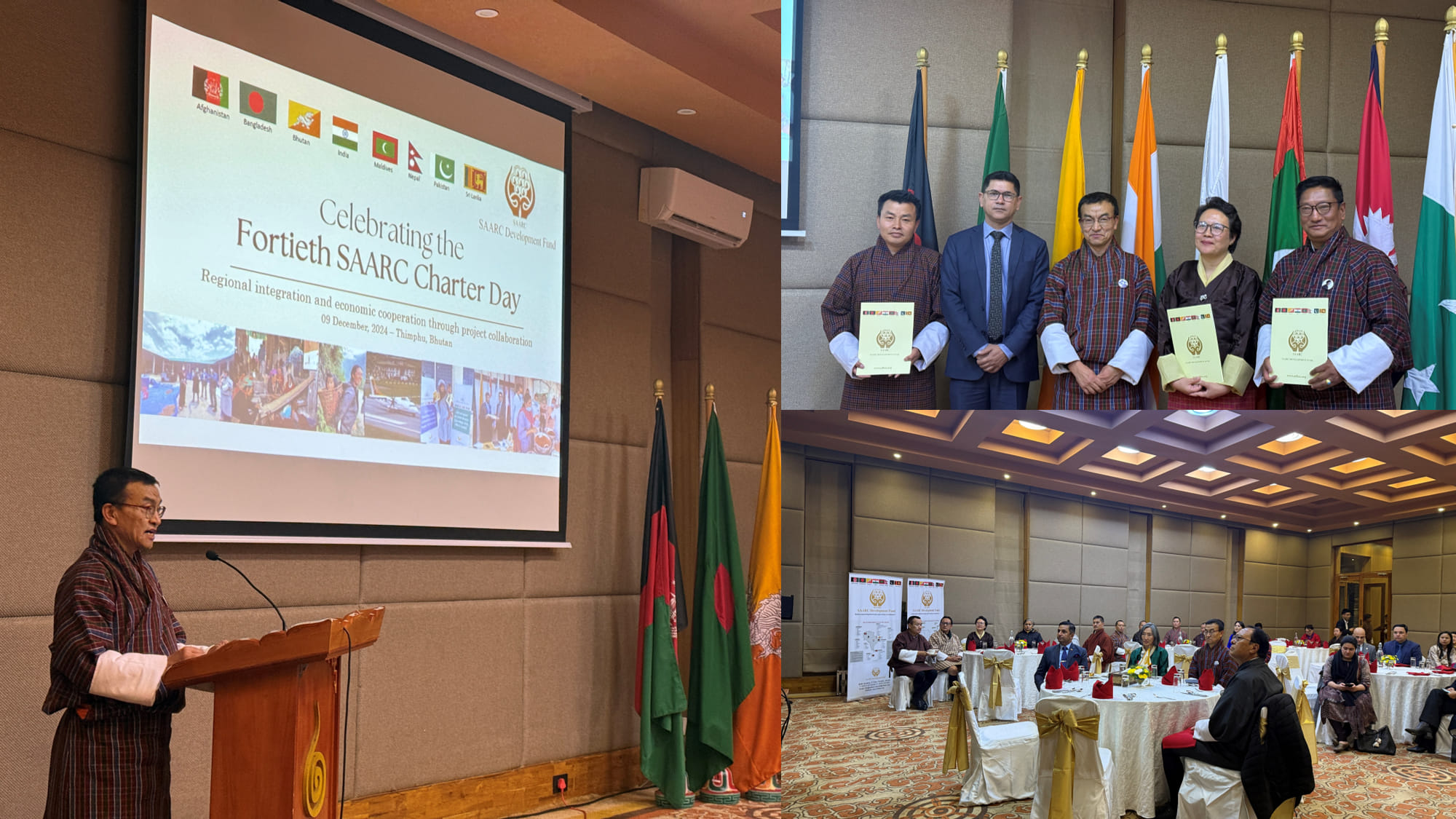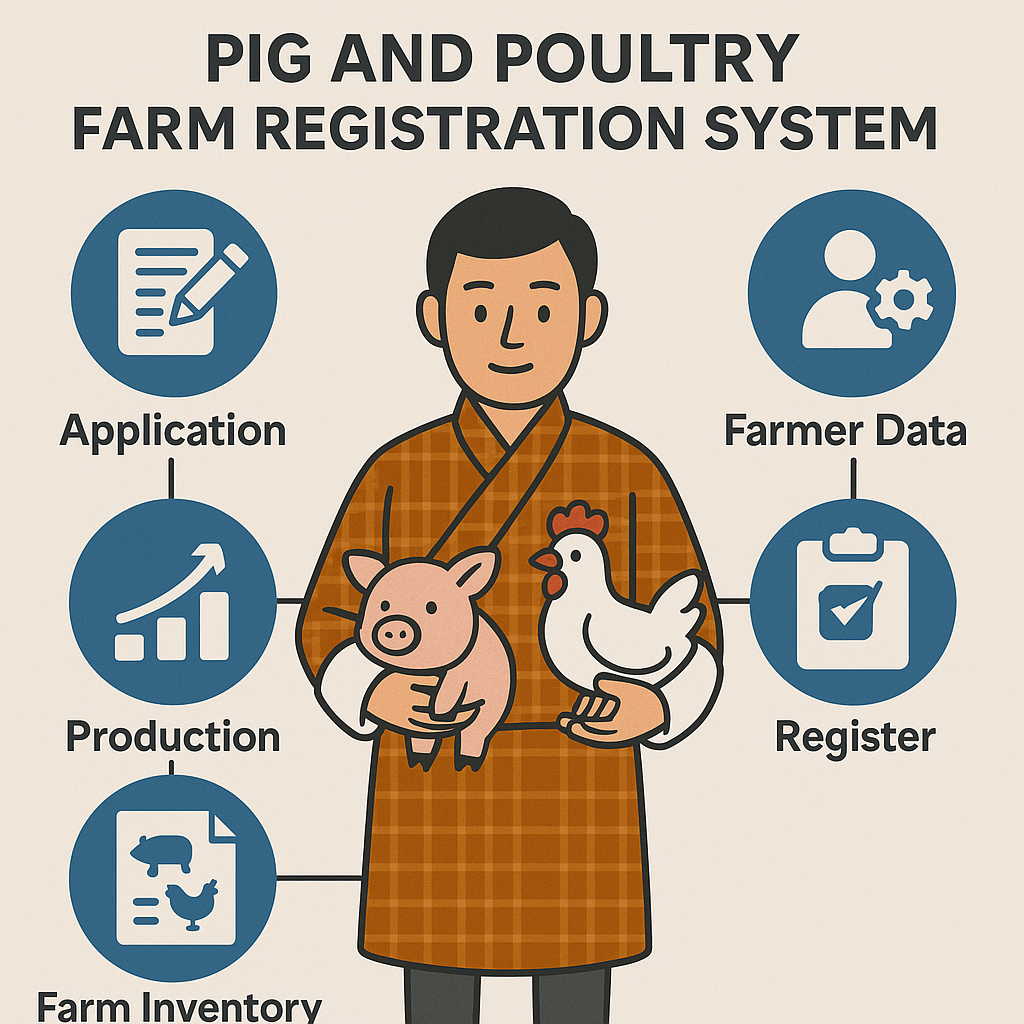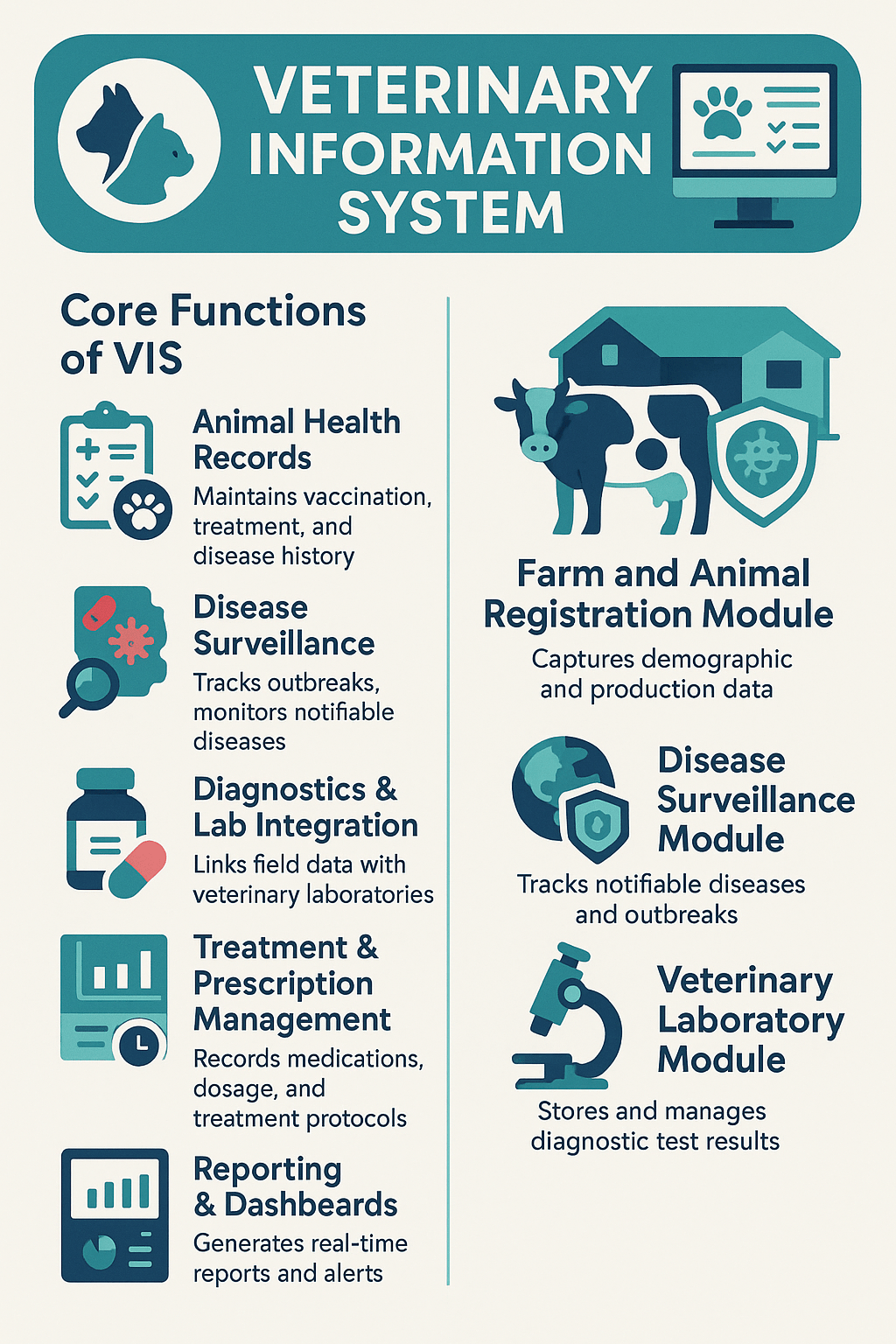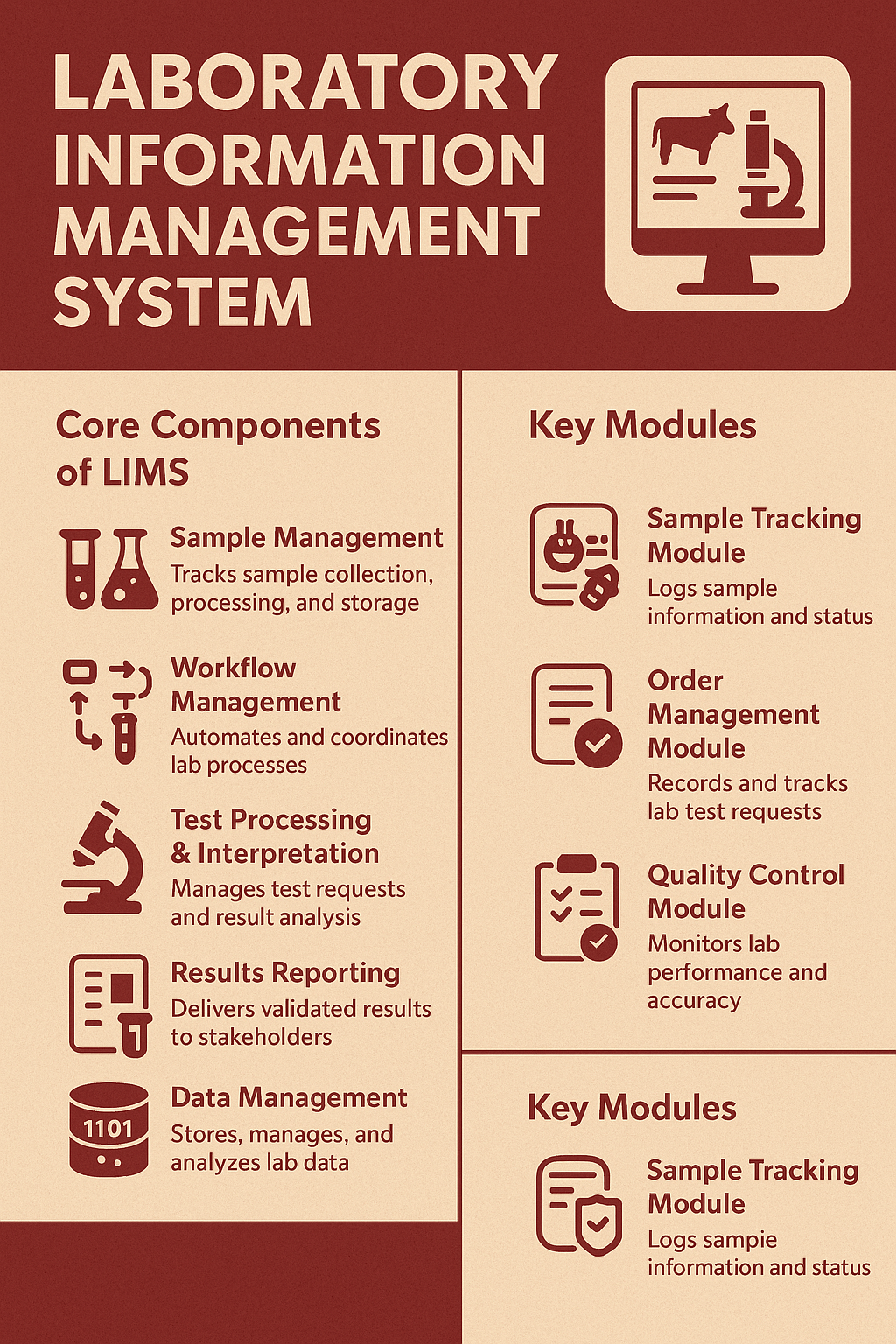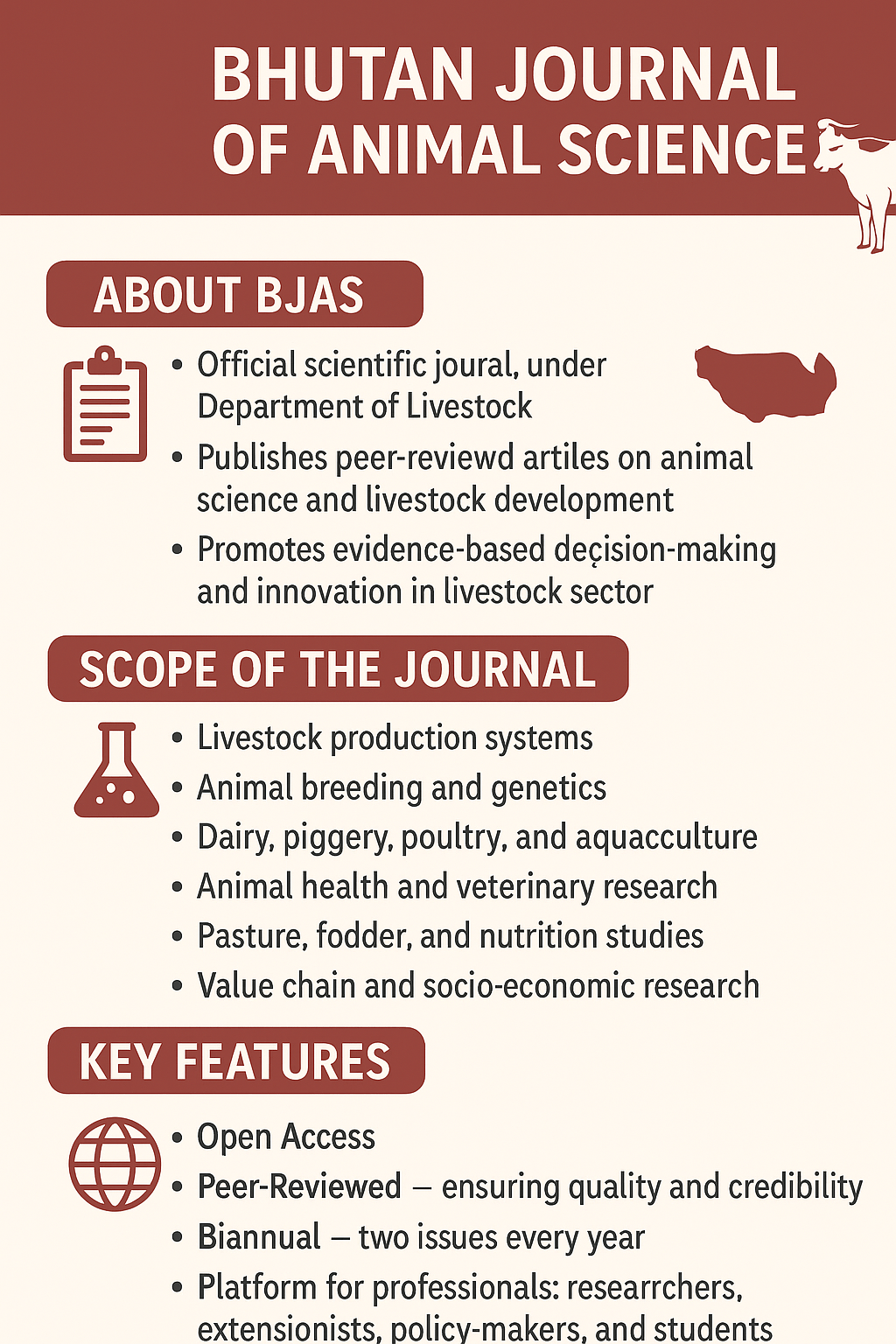𝘋𝘰𝘓’𝘴 𝘌𝘧𝘧𝘰𝘳𝘵 𝘵𝘰 𝘵𝘳𝘢𝘯𝘴𝘧𝘰𝘳𝘮 𝘢𝘲𝘶𝘢𝘤𝘶𝘭𝘵𝘶𝘳𝘦 𝘴𝘦𝘤𝘵𝘰𝘳 𝘪𝘯 𝘉𝘩𝘶𝘵𝘢𝘯 𝘵𝘩𝘳𝘰𝘶𝘨𝘩 𝘚𝘋𝘍 𝘱𝘳𝘰𝘫𝘦𝘤𝘵 “𝘓𝘪𝘷𝘦𝘭𝘪𝘩𝘰𝘰𝘥 𝘌𝘯𝘩𝘢𝘯𝘤𝘦𝘮𝘦𝘯𝘵 𝘰𝘧 𝘚𝘮𝘢𝘭𝘭-𝘴𝘤𝘢𝘭𝘦 𝘍𝘪𝘴𝘩 𝘍𝘢𝘳𝘮𝘦𝘳𝘴 𝘢𝘯𝘥 𝘕𝘶𝘵𝘳𝘪𝘵𝘪𝘰𝘯 𝘚𝘦𝘤𝘶𝘳𝘪𝘵𝘺 𝘰𝘧 𝘙𝘶𝘳𝘢𝘭 𝘗𝘰𝘱𝘶𝘭𝘢𝘵𝘪𝘰𝘯𝘴 𝘪𝘯 𝘵𝘩𝘦 𝘚𝘈𝘈𝘙𝘊 𝘙𝘦𝘨𝘪𝘰𝘯 𝘵𝘩𝘳𝘰𝘶𝘨𝘩 𝘈𝘲𝘶𝘢𝘤𝘶𝘭𝘵𝘶𝘳𝘦 𝘋𝘦𝘷𝘦𝘭𝘰𝘱𝘮𝘦𝘯𝘵”
𝐒𝐨𝐮𝐫𝐜𝐞: SAARC Development Fund
Thimphu, Bhutan, 9 December 2024 – The SAARC Development Fund (SDF) celebrated the 40th SAARC Charter Day, commemorating the historic adoption of the SAARC Charter on December 8, 1985. The event, held in Thimphu today, brought together dignitaries, ambassadors, senior government officials, and stakeholders to honour the vision of regional cooperation and unity in South Asia.
As the only SAARC institution headquartered in Thimphu, Bhutan, SDF highlighted its role in advancing the region’s development agenda since its establishment in 2010. Speaking at the event, Bhutan’s Finance Minister and SDF Governing Council Member, Lyonpo Lekey Dorji, underscored the significance of regional collaboration: “SAARC stands as a symbol of resilience and unity, embodying the desire of its member states to work collectively for progress and mutual benefit. Let us embrace the immense potential of our region and reaffirm our commitment to economic connectivity and human capital development.”
During the celebrations, Officer-in-Charge of SDF, Jamal Uddin Ahmed, shared about the SDF’s role in fostering regional development. “With over 90 projects implemented across 15 thematic areas, SDF’s initiatives reflect our unwavering commitment to social progress, economic growth, and poverty alleviation across South Asia. The trust of our partners makes everything we do possible,” he said. “On this 40th SAARC Charter Day, we honour the vision of our founding leaders and look ahead to unlocking the region’s immense potential through resilience, connectivity, and collaboration.”
SDF also announced the launch of three projects under its Social Window, with a total of over USD 9.7 million, aimed at enhancing livelihoods, advancing inclusive early childhood education and sustainable energy solutions.
“These projects are a testament to SDF’s commitment to development in the region,” said the Officer-In-Charge, Jamal Uddin Ahmed.
The project “Livelihood Enhancement of Small-scale Fish Farmers and Nutrition Security of Rural Populations in the SAARC Region through Aquaculture Development” seeks to transform aquaculture practices and bolster nutrition security in six SAARC member states: Bangladesh, Bhutan, India, Maldives, Nepal, and Sri Lanka. With a budget of USD 3,966,671—comprising USD 3,227,562 from SDF and USD 739,109 as in-kind co-financing—the three-year initiative is led by the ICAR-Central Institute of Freshwater Aquaculture, India. The implementation is supported by leading government agencies from each participating country, including the Department of Fisheries (Bangladesh), the National Research and Development Centre for Aquaculture under the Ministry of Agriculture and Livestock (Bhutan), ICAR-CIFA (India), Maldives Marine Research Institute (Maldives), the Central Fisheries Promotion and Conservation Center (Nepal), and the National Aquaculture Development Authority (Sri Lanka).
The project focuses on three key components: conducting surveys to identify critical aquaculture inputs and technologies, developing infrastructure for aquaculture supply, including advanced feed mills and hatcheries, and fostering knowledge management and capacity building through training programs and technology demonstrations, with a special emphasis on supporting women and small-scale farmers. This regional collaboration aims to uplift livelihoods, advance sustainable aquaculture, and enhance food security for rural communities across South Asia.
The second project “Partnership for Quality Inclusive Early Childhood Development & Basic Education” aims to enhance access to inclusive, high-quality learning environments for children, including children with disabilities, in Bhutan and Nepal. With a total budget of USD 4,788,460 (USD 2,394,230 from SDF and an equal cash contribution from Save the Children), the three-year initiative is led by Save the Children in collaboration with the Department of School Education and Ability Bhutan Society in Bhutan. The project aims to enhance access to inclusive learning environments, build the capacity of caregivers and teachers to promote children’s development and well-being, and encourage collaboration among stakeholders to ensure sustainable support for early childhood development.
The third project “Production of Commercial Biogas from Household Waste” aims to address rising energy needs and promote an energy transition from LPG to biogas for urban cooking in Bhutan. With a total budget of USD 948,616 (USD 448,616 from SDF and USD 500,000 in co-funding), the two-year initiative is spearheaded by the Bhutan Ecological Society in collaboration with the Department of Environment and Climate Change and the Thimphu Municipality Office. The project will establish a biogas plant on the outskirts of Thimphu to process biodegradable waste, producing commercial canned biogas and bio-fertilizers. This initiative supports Bhutan’s efforts to diversify its energy sector while offering technological, environmental, and economic benefits.
![]()

